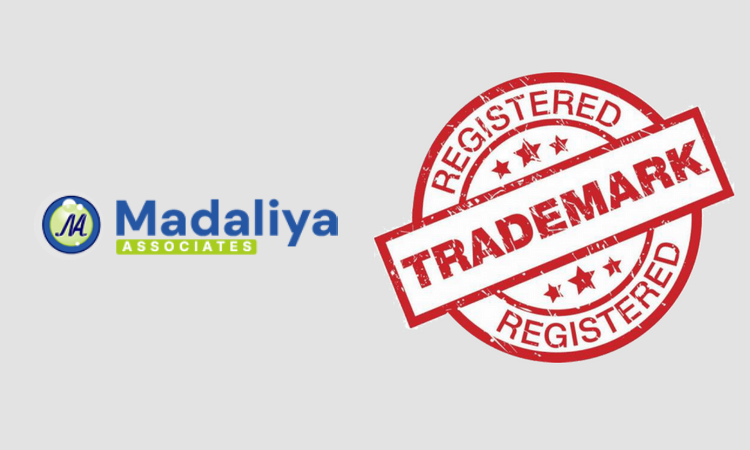

Introduction to Trademark Registration in India
In today’s competitive business landscape, protecting your brand identity is essential. Whether you're a startup founder, entrepreneur, or established business, registering a trademark ensures your brand name, logo, or slogan has legal protection. With the rise of digital platforms, online trademark registration in India has become easier than ever.
However, the process can be overwhelming, especially if you're new to legal formalities. This guide breaks down the key documents required for trademark registration, making the process simple and straightforward.
Why Trademark Registration Matters
Before diving into the documents, let’s quickly understand why trademark registration is important.
-
It grants exclusive rights over your brand name or logo.
-
It legally protects your business from brand misuse or infringement.
-
It enhances your brand’s credibility and trust.
-
A registered trademark can become a valuable intangible asset.
Registering a trademark not only secures your identity but also adds long-term value to your business.
Who Can Apply for a Trademark?
The following entities can apply for a trademark in India:
-
Individual or Sole Proprietor
-
Partnership Firm
-
Private Limited or Public Limited Company
-
Limited Liability Partnership (LLP)
-
Trust or Society
-
Foreign Company
-
Startups and MSMEs
Each of these applicants must submit a few common documents, along with some additional documents depending on their entity type.
Primary Documents Required for Online Trademark Registration
Let’s explore the main documents required for filing a trademark application in India.
1. Applicant’s Identity Proof
Whether you're an individual or a company, identity proof is mandatory. Acceptable documents include:
-
Aadhar Card
-
PAN Card
-
Voter ID
-
Passport
-
Driving License
For companies, the identity proof of the authorized signatory or director is required.
2. Address Proof of the Applicant
You also need to provide valid address proof. It can be:
-
Utility Bill (Electricity or Water Bill)
-
Rent Agreement
-
Property Deed
-
Bank Statement (latest)
Companies and LLPs must provide the registered office address proof.
3. Business Registration Document
For business entities, registration documents are essential:
-
Partnership Deed (for Partnership Firms)
-
Certificate of Incorporation (for Companies or LLPs)
-
Registration Certificate (for MSMEs or Startups)
-
Society or Trust Deed (for Trusts and NGOs)
These documents establish the legal identity of the entity applying for the trademark.
4. Trademark Logo (if applicable)
If you're registering a logo or device mark, submit a high-resolution image (preferably in black and white) of the logo. Recommended file format: JPEG or PNG, size: less than 2 MB.
Tip: Even if you don’t have a logo, you can register your brand name or wordmark in plain text.
5. Proof of Trademark Usage (Optional but Recommended)
If your brand is already in use, submit proof of usage such as:
-
Website screenshots
-
Invoices with branding
-
Packaging or labels
-
Social media pages
-
Marketing brochures
This strengthens your case, especially if you are applying for a "prior use" claim under the Indian Trademark Act.
6. Power of Attorney (Form TM-48)
To authorize a trademark attorney or agent to file the application on your behalf, you need to sign Form TM-48.
-
Must be signed by the applicant.
-
Should be printed on plain paper.
-
Requires no notarization for Indian applicants.
For foreign applicants, notarization is recommended.
7. MSME or Startup India Certificate (If Applicable)
If your business is registered as an MSME or under Startup India, attach the relevant certificate of registration. This allows you to claim a 50% government fee rebate on the trademark application.
Document Checklist by Applicant Type
Here’s a quick summary of the document checklist based on the applicant category:
| Applicant Type | Key Documents |
|---|---|
| Individual | ID proof, address proof, trademark logo (if any), TM-48 |
| Partnership Firm | Partnership deed, ID & address proof of partners, trademark logo, TM-48 |
| Private/Public Co. | Certificate of Incorporation, Board Resolution, director ID, TM-48 |
| LLP | LLP Agreement, Certificate of Incorporation, partner ID proof, TM-48 |
| MSME/Startup | Registration certificate, ID proof, TM-48, trademark logo |
| Trust/Society | Registration deed, ID of trustees, address proof, TM-48 |
| Foreign Company | Address in home country, Indian address (if any), ID proof, TM-48 |
Government Fees for Trademark Registration
The government fee for online trademark registration in India varies based on the entity type:
-
Individuals / Startups / MSMEs: ₹4,500 per class per application
-
Others (Companies, LLPs, etc.): ₹9,000 per class per application
Trademark classes refer to different categories of goods/services under which you register your brand. Choose the correct class carefully to ensure maximum protection.
Steps to Apply for a Trademark Online
Here’s a simple step-by-step process to register a trademark online in India:
-
Conduct a Trademark Search
Use the IP India Public Search tool to check availability of your desired trademark. -
Collect Required Documents
Gather all the documents mentioned above. -
Draft and File the Application (Form TM-A)
Submit the application through the IP India website or through a trademark attorney. -
Pay Government Fees
Fees depend on your entity type and number of classes. -
Examination by Registry
The application is examined, and an examination report is issued. -
Publication in Journal
If accepted, the trademark is published in the Trademark Journal for public opposition. -
Trademark Registration Certificate
If there’s no opposition within 4 months, your trademark gets registered and a certificate is issued.
Common Mistakes to Avoid During Documentation
-
Submitting incorrect or outdated documents
-
Not signing the Power of Attorney (TM-48) correctly
-
Uploading poor quality logo images
-
Failing to provide proof of prior usage when needed
-
Selecting the wrong trademark class
Avoiding these mistakes ensures faster approval and reduces the risk of objections or rejection.
How a Trademark Attorney Can Help
A qualified trademark attorney or legal consultant can simplify the entire process. They help with:
-
Trademark availability search
-
Drafting and filing TM-A and TM-48 forms
-
Documentation verification
-
Handling objections or oppositions
-
Renewal and brand portfolio management
You can explore professional help at madaliya.com to ensure error-free registration.
Conclusion
Filing a trademark application online in India is not difficult if you have the right documents and guidance. By preparing all necessary documents in advance and choosing the correct class of goods/services, you can protect your brand identity and ensure long-term growth.
Whether you’re an individual entrepreneur or a large company, the trademark registration process adds immense value, recognition, and security to your brand.
Need Help with Trademark Registration?
Get expert assistance with trademark filing, brand name availability search, and documentation at
👉 https://madaliya.com






